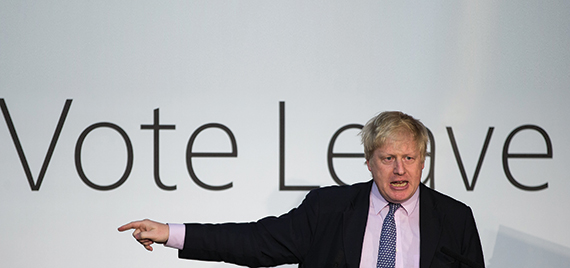The average house price, measured by the Halifax HPI, has risen by 241% over the past two decades, with London recording growth of nearly 500%. In contrast, the FTSE 100 over that time has returned 223%, with considerably more volatility.
 Yet over the past few months a raft of economists and property “gurus” have been calling the top of the market. With the London mayoral election and the prospect of a Brexit, now is as good a time as any to reassess the risk/return dynamics of the London housing markets.
Yet over the past few months a raft of economists and property “gurus” have been calling the top of the market. With the London mayoral election and the prospect of a Brexit, now is as good a time as any to reassess the risk/return dynamics of the London housing markets.
Reminiscent of the period before the Scottish referendum, there has been a lull in market activity, with most investors taking a wait-and-see approach regarding the UK independence vote.
While not giving a view as to whether the UK should remain or exit the EU, our prognosis is that the UK will stay in.
London house prices could see radical changes, with both the Conservative and Labour parties having made housing a priority.
The Tories want to speed up the rate of housebuilding. In contrast, Labour wants to force property developers to build more “genuinely affordable” homes. Both want to build on more public land, which makes up a quarter of the city. They have also promised to try to exclude foreign property buyers and have ruled out building on green belt land.
Theoretically, this should reduce values and benefit struggling first-time buyers. However, the political cynic in me does not believe that any of the current mayoral candidates have the ability or potential to significantly alter London’s supply-demand dynamics.
With a lack of historical precedence for a country leaving the EU, assessing the potential effect of Brexit on London house prices is that much harder. An application for withdrawal opens a negotiation period of at least two years.
In such an event, our model assumes that UK investment would contract by 3% and employment growth turn negative in the second half of this year, with the UK economy contracting by 1% by the end of 2017. London’s status as Europe’s financial centre would also likely be weakened. Unless the next mayor successfully prevents foreign purchases, prices will continue to rise as the pound falls.
This is an unlikely scenario, and we would expect the Bank of England to lean against elevated uncertainty and financial market volatility by further easing monetary policy. Specifically, we would expect the BoE to cut the policy rate by another 50bps; this would bring the policy rate by the end of 2016 to zero and the deposit rate to -50bps. The BoE is also likely to deploy quantitative easing again by announcing a new asset purchase programme of £100bn-£150bn.
The very accommodative monetary response policy is likely to be sustained until uncertainty is resolved and macroeconomic activity stabilises. The sterling depreciation and the pass-through into prices will allow the BoE to gradually remove some of the policy accommodation as the economy stabilises and there is more clarity over time about the trade and regulatory framework.
Undoubtedly, an EU exit would result in short- to medium-term volatility in financial markets, which could have a spillover effect on London housing. Owing to the illiquidity of the asset class, we can expect to see less transactional activity until things calm down, but no real downward price momentum. Conversely, an accommodating BoE could even help push up prices, despite growing volatility in other asset classes.
In essence, neither a Brexit nor the London mayoral elections pose any real danger to London house prices. This may be unfortunate for those trying to get a foot in the market; however, the basic supply-demand fundamentals remain unchanged: we are not building enough homes.
To put this into numbers, London’s population is expected to grow to 9.4m by 2022 and 10m by 2029. The average annual supply in London since 1980 has been 16,000 homes a year, and 28,000 homes were built in 2014 versus the real annual demand of more than 50,000.
As long as the supply/demand matrix remains this skewed, London’s risk/return dynamics remain particularly strong, and despite some potential for a short-term slowdown caused by the impending polls, the economic reality does not change.
Michel Heller is a fund manager at Gowers Investments











